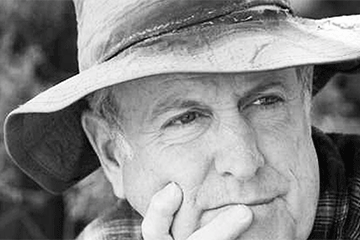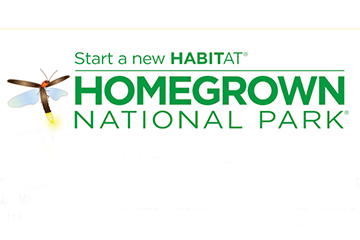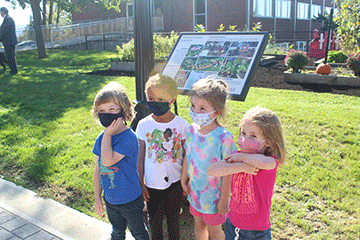Bulletin News

02/22/2022
Most home gardeners pottering around with trowel, plant cuttings and a bag of mulch behind the old homestead don’t think of themselves as “nature’s best and last hope.”
Doug Tallamy, an entomologist at the University of Delaware and best-selling author, does. He would like to see more people view their backyards as probably the last opportunity we have for sustaining endangered plants and animals that were once common throughout the U.S.
“We are at a critical point of losing so many species from local ecosystems that their ability to produce the oxygen, clean water, flood control, pollination, pest control, carbon storage, etc. — that is, the ecosystem services that sustain us — will become seriously compromised,” he warned.
SUNY Cortland’s Garden Advisory Committee, which among other things creates and helps maintain gardens and edible landscaping in consultation with Facilities Management, has asked Tallamy to give a virtual lecture on Monday, March 7, on the topic “Are ‘Alien’ Plants ‘Bad’?”

Tallamy will begin at 7 p.m. The event is free and open to the campus community. Participants must register at the following link.
“We were taught from childhood that plants are decorations and our landscapes are for beauty; they are an outlet for expressing our artistic talents and an oasis for having fun and relaxing in,” Tallamy said.
“And, whether we like it or not, the way we landscape our properties is taken by our neighbors as a statement of our wealth, our social status, and our willingness to follow cultural norms.”
However, Americans have taken over 95% of the natural world in the lower 48 states and made it unnatural while biodiversity is rapidly disappearing from what little wilderness remains, he noted. Native animal species can’t eat most of the invasive trees, shrubs and grasses that now thrive without any check on their growth and now dominate the landscape.
In recent years, Tallamy has tried restoring 10 acres of exhausted farmland filled with non-native species. He is excited by the results and is encouraging others to start planting native species flora.
“The birds and other vertebrates that live on our land can do so, not just because of the moths our plants produce, but also because of the fruits and nuts our oaks, black walnuts, hickories, filberts, blackberries, serviceberries, dogwoods, persimmons, black cherries, pawpaws, chokeberries, viburnums and black gums make each year,” he wrote.
Tallamy manages a related website called Home Grown National Park.

He’ll discuss how the non-native species currently dominating our backyards figure into the ultimate solution that weekend caretakers can apply to their micro-preserves.
“Everyone who owns land has a golden opportunity to enhance, rather than degrade, local ecosystems by including ecological function as a criterion when we choose landscape plants,” Tallamy said. “And everyone who does not own land can become a player in the future of conservation by volunteering for a local park or land conservancy.”
The lecture is co-sponsored by the New York State Master Teachers Program and SUNY Cortland’s Biology Club, and the university’s Sustainability Office.
For more information, contact Garden Advisory Committee representative Sarah Beshers, professor of health and community health fieldwork coordinator.

